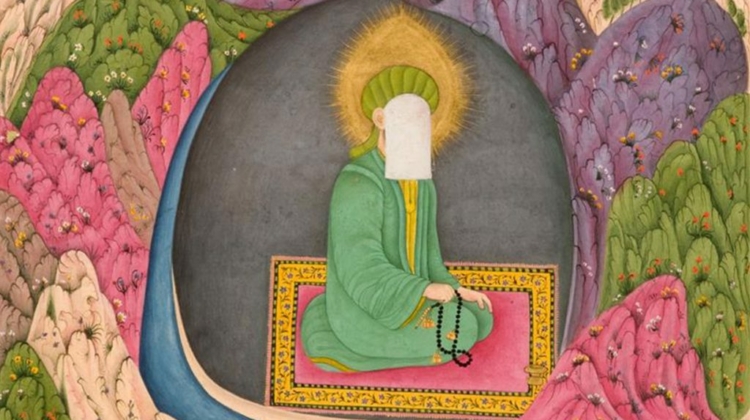Revelations of Convenience
Muhammad received messages from Allah that were tailor-made to please him.

|
Getting your Trinity Audio player ready...
|
[Want even more content from FPM? Sign up for FPM+ to unlock exclusive series, virtual town-halls with our authors, and more—now for just $3.99/month. Click here to sign up.]
One of the strongest arguments in favor of the historical accuracy of the Islamic traditions about Muhammad is that they portray a man who is obviously a false prophet. If he were a work of fiction, an invention of the human imagination, wouldn’t he have been a more compelling prophetic figure?
Muhammad’s child bride Aisha once asked him what the experience of receiving revelations was like, and he responded: “Sometimes it is (revealed) like the ringing of a bell, this form of Inspiration is the hardest of all and then this state passes off after I have grasped what is inspired. Sometimes the Angel comes in the form of a man and talks to me and I grasp whatever he says.”
On another occasion, he explained: “The revelation dawns upon me in two ways—Gabriel brings it and conveys to me as a man conveys to another man and that makes me restless. And it dawns upon me like the sound of a bell till it enters my heart and this does not make me restless.”
Aisha noted: “When revelation descended upon Allah’s Messenger even during the cold days, his forehead perspired.” Also, when inspiration came to him, “he felt a burden on that account and the colour of his face underwent a change,” and “he lowered his head and so lowered his Companions their heads, and when (this state) was over, he raised his head.”
A Muslim once said: “I wish I could see Allah’s Apostle at the time he is being inspired Divinely.” Obligingly, another asked Muhammad a question. Muhammad “waited for a while, and then the Divine Inspiration descended upon him.…The Prophet’s face was red and he kept on breathing heavily for a while and then he was relieved.” Then he gave an answer to the questioner.
On more than a few occasions, the circumstances of these revelations, according to the texts that devout Muslims wrote in the ninth century, seemed to manifest Allah’s anxiety to grant his prophet his heart’s desires — as in the notorious story of one of Muhammad’s wives, Zaynab bint Jahsh. Zaynab had been married to Muhammad’s adopted son Zayd bin Haritha. This was a union that neither of them had wanted, according to Islamic tradition, but upon which Muhammad insisted: it would show the equality of all believers, for Zaynab was from a notable family, while Zayd was but a freed slave. Muhammad received divine validation for his insistence: “And it is not fitting for a believing man or a believing woman, when Allah and his messenger have settled a matter, that they should claim any say in the matter, and whoever is rebellious to Allah and his messenger, he indeed goes astray in obvious error.” (Qur’an 33:36).
Zaynab bint Jahsh was apparently remarkably beautiful. According to the Tafsir al-Jalalayn, an ancient Islamic commentary on the Qur’an, after her marriage to Zayd, “Muhammad’s eye fell on her, and love for Zaynab budded in his heart.” One day, seeking Zayd, Muhammad went to their house and chanced upon her wearing only a chemise. Zaynab exclaimed, “He is not here, Messenger of Allah. Come in, you who are as dear to me as my father and mother!” But Muhammad hastened away in considerable agitation, murmuring something unheard and then adding audibly, “Glory be to Allah the Almighty! Glory be to Allah, who causes hearts to turn!”
Zayd, saddled with a marriage he had not wanted, saw his way out. He went to see Muhammad and echoed Zaynab’s language: “Messenger of Allah, I have heard that you came to my house. Why didn’t you go in, you who are as dear to me as my father and mother?” Then he got to the point: “Messenger of God, perhaps Zaynab has excited your admiration, and so I will separate myself from her.” Muhammad told him: “Keep your wife to yourself and fear Allah.” (Qur’an 33:37) Zayd returned on many occasions, but Muhammad would only repeat this admonition. Aisha later remarked, “If Allah’s Apostle were to conceal anything (of the Quran) he would have concealed thisVerse.” Finally, Zaid separated from her anyway, and shortly thereafter, Allah himself intervened. According to the Muslim historian Abu Ja’far Muhammad bin Jarir al-Tabari (839-923), one day Muhammad was talking with Aisha when “a fainting overcame him.” Then he smiled and asked, “Who will go to Zaynab to tell her the good news, saying that God has married her to me?”
He then recited the revelation Allah had just given him, scolding him for being concerned about what people might think and thus refusing to marry Zaynab. (Qur’an 33:37). So Muhammad took Zaynab as his wife, protected by a direct revelation from Allah from the appearance of scandal. To this day, Muslims in reciting the Qur’an recite these warnings to the Prophet that he should not turn aside from the gifts of Allah, and not hesitate to marry his former daughter-in-law.
This new wife, and the circumstances of her betrothal to Muhammad, worried Aisha. “I became very uneasy because of what we heard about her beauty and another thing, the greatest and loftiest of matters—what God had done for her by giving her in marriage. I said that she would boast of it over us.” And sure enough, Zaynab did, saying to Muhammad’s other wives: “You were given in marriage by your families, while I was married (to the Prophet) by Allah from over seven Heavens.”
If Muhammad is more myth and legend than fact, why would believing Muslims invent such a story, in which he looks so self-serving and lustful? We will consider that question in the next segment.

